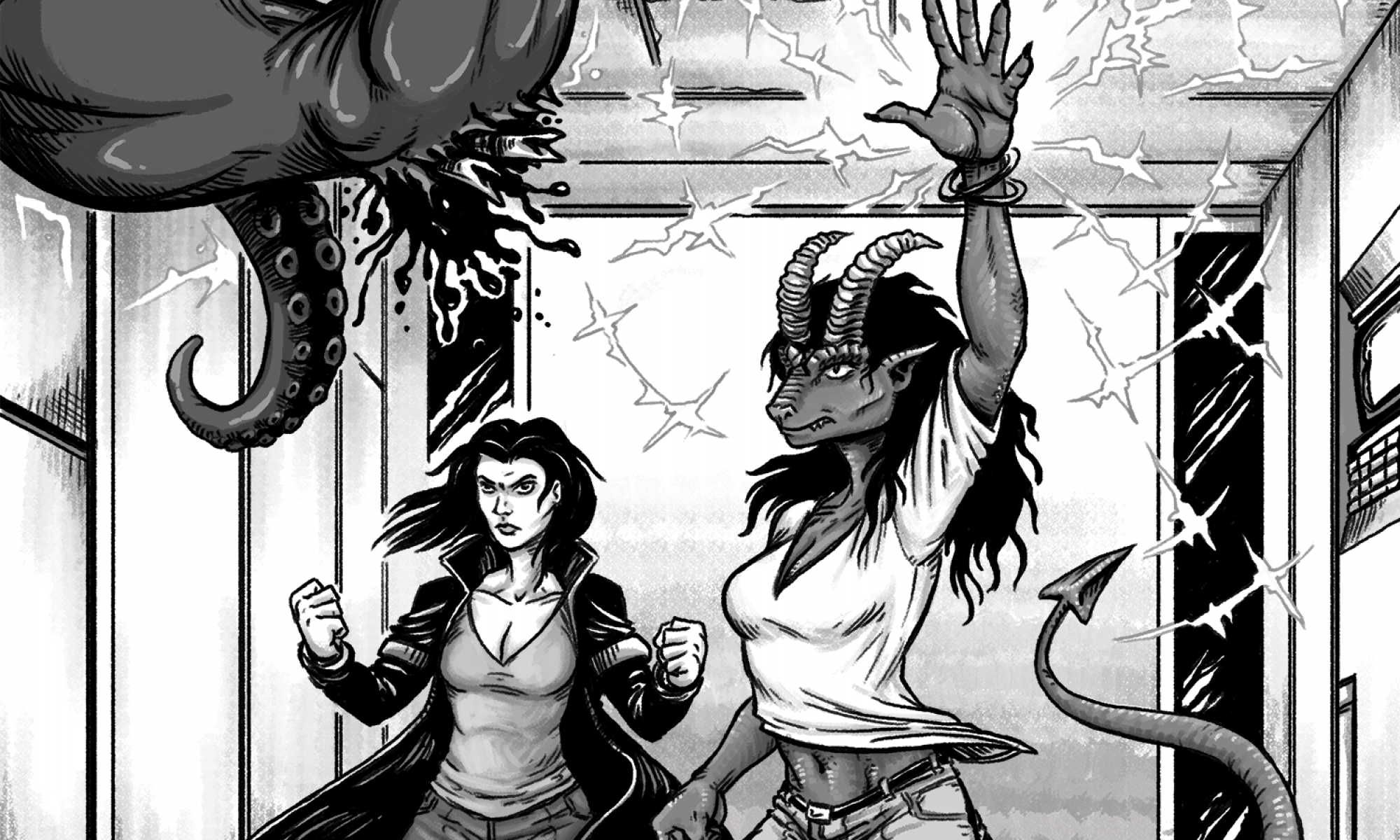The world of Metamor City was once a battleground between two rival factions of deities, the Gods of Heaven (Aedra Lords) and the Gods of Shadow (Daedra Lords). Both factions were unexpectedly drained of most of their divine power and cast to Earth in the year 708 CR. These fallen deities still walk the Earth — unaging, and more powerful than any single wizard, but also vulnerable, for any mortal who kills one of them will take his place in the pantheon. The person responsible for their fall, the half-divine theriomorph Merai hin’Dana, claims that she humbled the gods by the command and power of the mysterious Creator.
Today Metamor City is home to a diverse assortment of religions, which generally fall into three categories depending on their views of the Creator.
Theists: These people believe that the Creator is still active and involved in the world, and that relationship with him/her/it is possible. The most prominent theist religions are the Ecclesia, which is very similar to our Catholic Church, and the Church of St. Merai, both of whom worship a Creator-god called Eli.
Universalists: These people believe that there once was a Creator, but that his/her/its essence was distributed among Creation when the universe was made. Eli and the fallen gods all have pieces of that divine power, but the divine spark is in the hearts of mortals, as well. Universalists believe that the Creator divided itself into many fragments in order to understand itself; because of this, they focus on trying to emulate or embody some pure expression of the divine nature, because each portion of the Universe that achieves enlightenment will enrich the rest of the Universe by its understanding.
Some of the larger Universalist faiths include the Church of Hedonism, organized by Suspira, the fallen goddess of lust and fertility; the Church of Eternal Brotherhood, popular among the vampires and their servants; and the Church of the Great Mother, an ancient Southlander faith that has adopted many tenets of Universalist theology. There are also many Universalists who observe their own eclectic spiritual practices, but do not adhere to a larger church.
Agnostics: These people profess not to know anything about the nature of the Creator. Many of them believe that nothing can be known about the Creator. Agnostics may be completely non-religious, or they may devote themselves to philosophical disciplines similar to Zen Buddhism.
